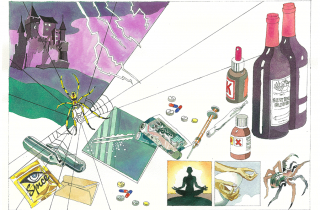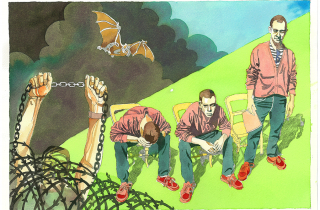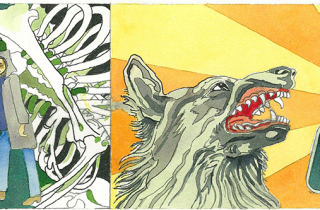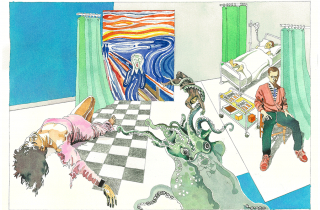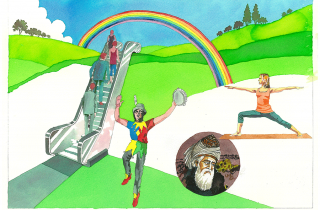The festive season can be a testing time. Add in the challenges that face families with addiction – and we can all feel like taking an extended dive under the duvet.
Given that ten minutes’ duvet diving in the morning is about all we’re going to get before we get up and start our day, let’s get creative and think ahead about strategies to head off potential pitfalls at the pass.
Here are some tips from the LLI FB broadcast with Addictions Expert Seven Graham on the topic of ‘Surviving the Holidays’.
A heads up – the tips in this broadcast were geared mostly to the addicted person, rather than to us as families. There’s a good reason for this. It’s VITAL that someone in recovery (whatever stage) takes responsibility for themselves. And that we allow them to do that.
NB – we will hold a second broadcast soon which will look at the holiday season from the family point of view.
Tips for the addict:
Snacks
- Have plenty of healthy snacks available at home and carry these with you when you’re out and about or going to a party.
- Don’t assume other people or your friends will ahve your best interests in mind. Think ahead if you’re going to a party and ask the hosts to provide a selection of non-alcoholic drinks.
- Let go of the ‘macho’ thing about it being weedy not to drink alcohol. That’s other people’s issues coming up.
- Watch out for kombucha. It’s fermented and slightly alcoholic, so could set off cravings.
Phone
- Make sure you always have a charged-up phone. Buy a couple of spare batteries and take them with you when you’re out, so that you are able to immediately call your sponsor or a friend if you encounter triggers or experience cravings and need help.
Exit strategy
- Don’t feel pressured to go to a party if you don’t want to go. Your recovery is the most important thing to take care of.
- Remember – it can take a long time to learn how to move through the world and stay sober or clean (or both).
Danger
- Be aware of the people, places and things which are likely to trigger you during the holiday season You may be returning to an environment with people who will make things difficult. It might help to make a list of potential triggers so that you’re fully aware of them.
- However – don’t assume you can’t do things because you’re in recovery. If you have a good enough reason to go somewhere (eg your grandparent’s 90th birthday party), you will be looked after.
- Be prepared to say ‘No’ if a party or any other gathering or situation will be dangerous for you – but don’t lock yourself in your bedroom.
- Remember – recovery includes doing things that you don’t want to do, but with the safety net of a strategy. Recovery means learning how to negotiate the world again.
‘Wolves’
- There are lots of people out there – whom we might refer to as ‘wolves’ – who don’t care about the addict’s recovery and who don’t appreciate that addiction kills people – either directly through overdoses or damage to the body from long-term use, or indirectly through accidents and trauma as a result of today’s poly-substance abuse i.e. a cocktail of street drugs, alcohol and prescription drugs.
- When you’re at a party, the people who are trying to make you have a drink or do a line of coke, have issues. They can’t tolerate someone sober being in the room, because that brings them face to face with their own dependence on alcohol or drugs.
- So stop and think if you’re being pressured to have a drink. Do you really want to jeopardise your own recovery? Of course, it can be difficult for example if you’re at an office party and that pressure is coming from your boss. If the boss is likely to exclude you from the ‘in crowd’ at work (or not promote you) because you’re not drinking, then consider whether this is the right working environment for you? We have to be brave in recovery and sometimes we have to let go of people and places if they’re not right for our recovery. (Seven left her job in TV to work as a postman in order to not be around triggers and people who might put temptation in her way. This helped her to get into solid recovery).
- Recovery is worth it! The feeling of love and connection with other people when you achieve and maintain your recovery, that it’s really worth fighting for and it’s worth getting through this testing holiday season, however tough – or dull – it may be.
Fun
- Recovery should be fun!
- Dancing and music are fun in recovery. Even if you feel awkward when you first dance ‘sober’. But the pay-off is that when you get over that awkwardness, you can have a great time. You can discover your love of music again, and moving your body to music, once you get over your self-consciousness. Seven recommends the book “Feel the Fear and Do It Anyway”
- Seven recommends kundalini yoga to both addicts in recovery and to families. It’s a wonderful way to get out of your head and back into your body, to release the stress and all of the trauma and emotions that are trapped in your body and to get back into balance. You will start feeling better in your body. You get to do lots of physical things that are challenging at first, but will make you feel free and release you from your inhibitions and ‘stuckness’, enabling you to have fun again.
- Seven also recommends a teacher in recovery himself – Tommy Rosen – and his programme Recovery 2.0, which is available online. It will give you lots of tools (that there isn’t time to cover here). Tommy is a great believer in yoga for recovery. See https://recovery2point0.com/
- Planning what you’re doing during the hols – society’s agenda is parties, which aren’t always the best place to be. It’s important especially for young people in recovery, to have fun with others in recovery – bowling, theme park, movies. Let the child within you have fun with others in recovery.
- If you’re concerned about finding the money to do these things, add up the money you spent on your addiction and put that towards these healthy fun activities. Join a gym or take up kundalini yoga. Even if you have debts, cut yourself some slack and keep a balance by investing in your physical recovery.
.Tips for families:
- If you’re hosting an event that the addict is attending, you need to realise that he/she may need to stay away, or leave after half an hour and go somewhere else that’s not so red-hot. They may want to see their sponsor or go to a 12 step meeting for encouragement to stay on track. It can be incredibly challenging to be around other people who are drinking, especially if your addict is newly in recovery. You wouldn’t ask someone with skin cancer to go out in the midday sun, would you?
- The longer people stay in addiction, the more layers of trauma they accumulate. Families don’t have to wait for their addict to hit ‘rock bottom’ – indeed, we have to be very cautious about doing that. Seven believes in being pro-active, and doing an intervention if necessary, to ensure that rehab is the only choice available to your addict. And if rehab isn’t an option financially, you can insist on a programme of attending 12 Step Narcotics Anonymous or Alcoholics Anonymous meetings to find recovery.
- The best thing you can do is to support your family member to stay clean by having a low-key holiday season
- Be sensitive to just how challenging this situation is, during the holiday season. Communication before the event is really important. Try and have an open and honest conversation with the person in your family who’s really struggling with addiction. This also applies if they’re still in active addiction. Seven has assumed during this broadcast, that people know about abstinence. If you wonder about someone who is addicted to cannabis but has never had a drink problem and you’re wondering why Seven has been banging on about drink rather than cannabis – there’s a graphic map called the “Addiction Tree”. This map which spells out all the different branches of addiction, how addicts can stop using one substance and then cross addict into another (or into shopping, sex or internet addiction) and why abstinence is so important. Check out the map on Seven’s Instagram (Angels Are Intersex). Also check out her pamphlet “Addictions and Holistic Recovery” (produced when she worked at the Hale Clinic) http://bit.ly/2k6B2PH
- There is a whole range of things your addict is dealing with and they may be cross-addicting into other things. It’s important for families to understand as much as possible about addiction in general.

